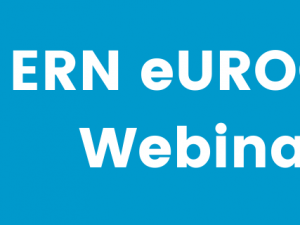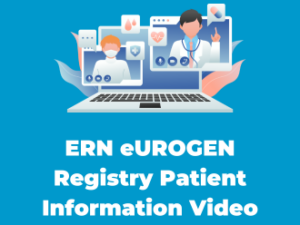The 10th European Testicular Tumor Workshop, supported by ERN eUROGEN, was held in Prague from 9 to 11 October 2024. Dr Ludmila Boublíková from Fakultní Thomayerova nemocnice, one of ERN eUROGEN’s Full Member Healthcare Providers, has prepared the following report.

Report from the 10th European Testicular Tumour Workshop, 9-11 October 2024, Prague
By Ludmila Boublíková
After a 6-year break due to COVID-19, the jubilee 10th European Testicular Tumor Workshop was held in October 2024. It continued the tradition of the Copenhagen Workshops as the only meeting worldwide devoted to testicular cancer.
The workshop was supported by and under the auspices of several national and international academic bodies and professional societies, including the Czech Oncologic and Urologic Societies, the European Academy of Andrology, ERN EURACAN, and ERN eUROGEN.
Although testicular tumours are the most common solid malignancies in young adult men, little progress has been made in their management over the past decades, and they often seem to remain outside the public’s and professionals’ attention. Contrary to the vast majority of other malignancies, no targeted therapy has been approved for patients with these tumours, no clinical trials have been conducted, and no efficient management has been provided for those with disease refractory to cisplatin-based chemotherapy.
The workshop was a unique opportunity to share and learn novel information from preclinical and translational research and exchange experience in the clinical management of testicular tumour patients. It also supported the establishment of new collaborations and inspired many future projects.
The workshop was attended by 65 participants, including several leading international experts in testicular germ cell tumour research and management, and its program covered all aspects of testicular tumours, from the incidence, epidemiology, hereditary predispositions, and etiopathogenesis to molecular biology and cisplatin resistance causes, classification, novel biomarkers and diagnostic approaches, optimal management at particular stages and novel treatment options, to follow-up and late side-effects management including fertility issues and second malignancy risks.
Finally, a proposal to establish a pan-European network connecting those involved in testicular tumour research and management and promoting international collaboration has been unanimously agreed upon. This European Testicular Tumor Network is now being built, and all interested researchers and physicians are welcome to join (email: ludmila.boublikova@ftn.cz).





